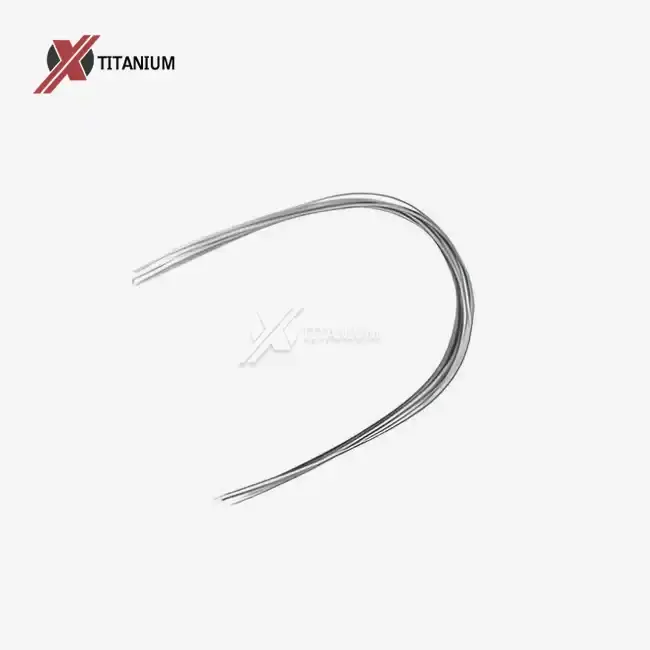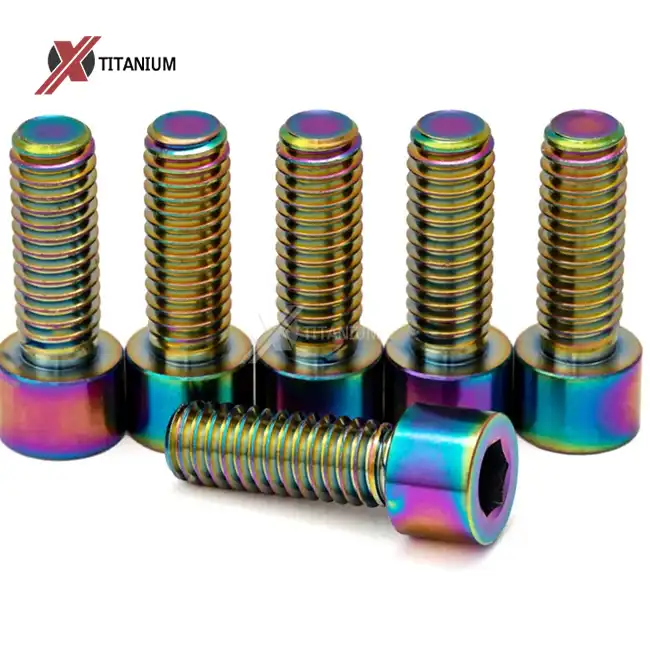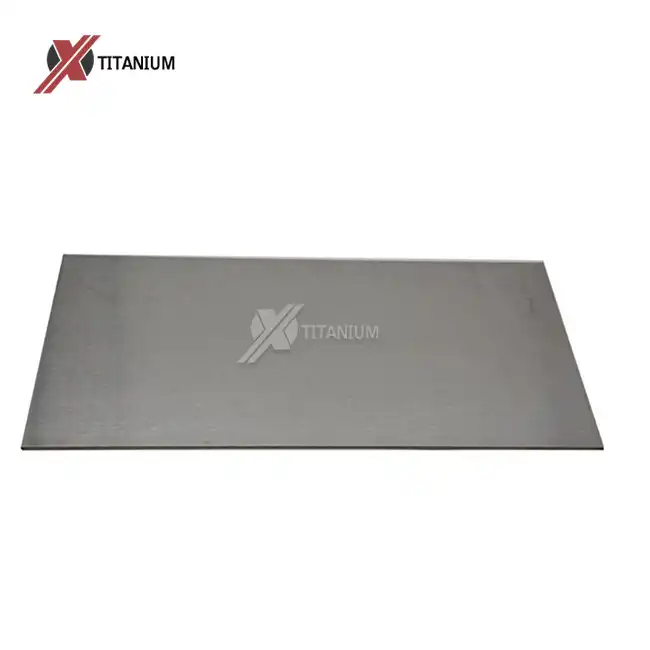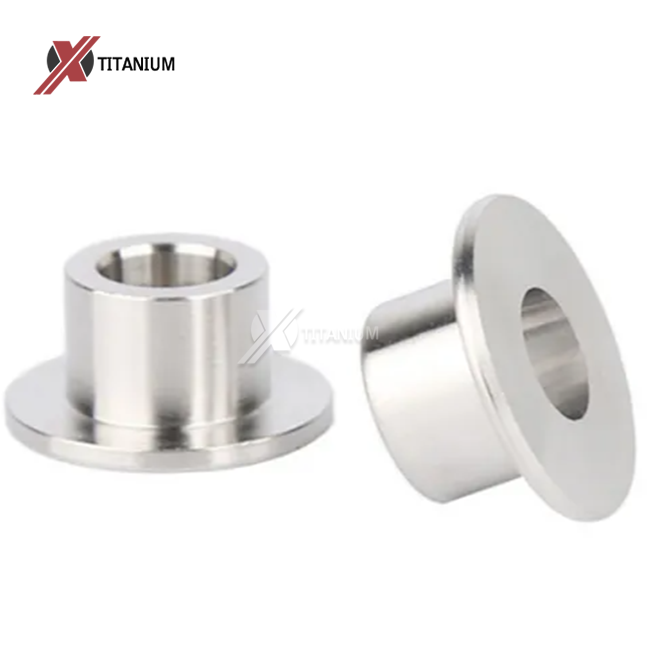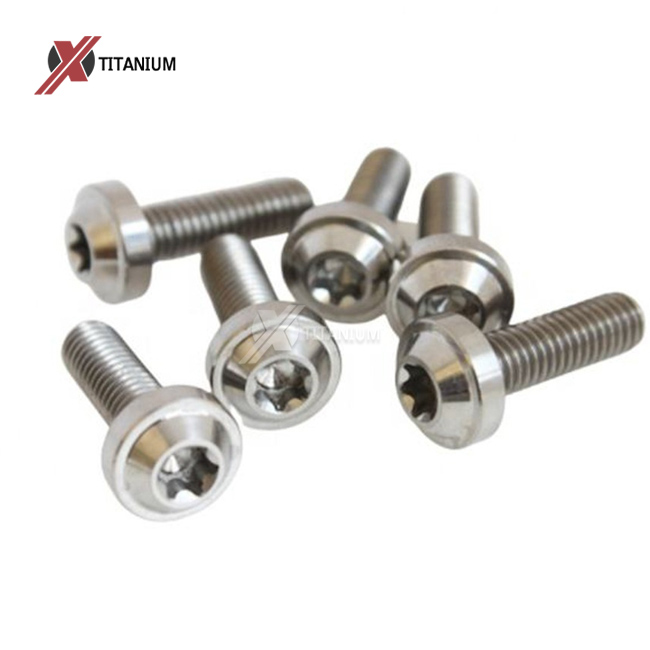Understanding Beta Titanium Wire
Beta titanium wire is a specialized alloy that combines the strength of titanium with enhanced flexibility and biocompatibility. This innovative material is composed of titanium (Ti) with 10-15% molybdenum, resulting in a wire that offers a remarkable balance of properties suitable for a wide range of applications.
The unique characteristics of beta titanium wire include:
- High strength-to-weight ratio
- Excellent corrosion resistance
- Low density (4.42 g/cm³)
- Impressive tensile strength (900-1,200 MPa)
- Good elongation (15% - 20%)
- High melting point (1,668 °C)
These properties make beta titanium wire an ideal choice for industries requiring durable, lightweight, and corrosion-resistant materials. Its versatility extends from aerospace and chemical processing to marine engineering and industrial manufacturing.
Manufacturing Process of Beta Titanium Wire
The production of beta titanium wire involves several sophisticated techniques to ensure its quality and performance. These processes include:
- Cold Rolling: This technique involves passing the titanium alloy through rollers at room temperature, enhancing its strength and reducing its thickness.
- Hot Rolling: Similar to cold rolling, but performed at elevated temperatures, allowing for greater deformation and improved ductility.
- Annealing: A heat treatment process that relieves internal stresses, improves ductility, and enhances the wire's overall properties.
- Pickling: This chemical process removes impurities and oxides from the wire's surface, improving its appearance and performance.
The surface treatment of beta titanium wire can vary based on specific requirements, including bright, polished, pickled, acid-cleaned, or sandblasted finishes. These treatments contribute to the wire's final properties and appearance, making it suitable for diverse applications.
Biocompatibility of Beta Titanium Wire
Biocompatibility is a crucial factor when considering materials for medical applications. It refers to the ability of a material to perform with an appropriate host response in a specific situation. Beta titanium wire has demonstrated exceptional biocompatibility, making it a preferred choice in various medical devices and implants.
The biocompatibility of beta titanium wire can be attributed to several factors:
- Non-toxicity: Beta titanium alloys do not release harmful substances into the body, ensuring long-term safety for patients.
- Corrosion resistance: The wire's resistance to corrosion prevents the release of metal ions, reducing the risk of adverse reactions in the body.
- Low allergenic potential: Beta titanium wire has a low risk of causing allergic reactions, making it suitable for a wide range of patients.
- Osseointegration: The material promotes bone growth and integration, essential for dental and orthopedic implants.
- Mechanical compatibility: Its strength and flexibility closely match those of human bone, reducing stress shielding and improving long-term implant success.
Medical Applications of Beta Titanium Wire
The biocompatibility of beta titanium wire has led to its widespread use in various medical applications:
- Orthodontic archwires: Beta titanium wire's flexibility and strength make it ideal for orthodontic treatments.
- Cardiovascular stents: The wire's corrosion resistance and biocompatibility contribute to the longevity and safety of stents.
- Surgical sutures: Beta titanium wire's strength and flexibility make it suitable for certain types of surgical sutures.
- Orthopedic implants: Its mechanical properties and osseointegration capabilities make it valuable in bone and joint replacements.
- Dental implants: Beta titanium wire is used in various dental applications due to its biocompatibility and strength.
Advantages of Beta Titanium Wire in Medical Applications
The use of beta titanium wire in medical applications offers numerous advantages:
- Enhanced patient comfort: Its flexibility and low weight contribute to improved patient comfort, especially in long-term implants.
- Reduced risk of complications: The biocompatibility and corrosion resistance of beta titanium wire minimize the risk of adverse reactions and implant rejection.
- Improved healing: Its ability to promote osseointegration can lead to faster healing and better long-term outcomes in certain procedures.
- Durability: The high strength and corrosion resistance of beta titanium wire contribute to the longevity of medical devices and implants.
- Versatility: Its unique combination of properties makes it suitable for a wide range of medical applications, from orthodontics to cardiovascular interventions.
Customized Beta Titanium Wire for Specific Medical Needs
The versatility of beta titanium wire extends to its ability to be customized for specific medical applications. Manufacturers can adjust the wire's composition, diameter, and surface treatment to meet the unique requirements of different medical devices and procedures. This customization allows for optimized performance in various applications, from delicate orthodontic work to robust orthopedic implants.
Customized beta titanium wire can be tailored in several ways:
- Diameter adjustment: Wire thickness can be precisely controlled, ranging from 0.05 mm to 10 mm, to suit different medical applications.
- Alloy composition: The ratio of titanium to molybdenum can be fine-tuned to achieve specific mechanical properties.
- Surface treatments: Various finishes can be applied to enhance biocompatibility or provide specific surface characteristics.
- Heat treatments: Customized annealing processes can optimize the wire's strength and flexibility for particular uses.
Conclusion
Beta titanium wire has proven to be highly biocompatible, making it an invaluable material in the medical field. Its unique combination of strength, flexibility, and corrosion resistance, coupled with its non-toxic nature, makes it ideal for a wide range of medical applications. From orthodontic archwires to cardiovascular stents and orthopedic implants, beta titanium wire continues to play a crucial role in advancing medical technologies and improving patient outcomes. As research and development in this field progress, we can expect to see even more innovative applications of this versatile and biocompatible material in the future of medicine.
At Baoji Chuanglian New Metal Material Co., Ltd., we specialize in manufacturing high-quality beta titanium wire for various industries, including medical applications. Our state-of-the-art production facilities and rigorous quality control processes ensure that our products meet the highest standards of performance and biocompatibility. Whether you need standard or customized beta titanium wire for your medical devices or implants, our team of experts is ready to assist you.
Frequently Asked Questions
What makes beta titanium wire biocompatible?
Beta titanium wire's biocompatibility stems from its non-toxic nature, corrosion resistance, and ability to integrate with living tissue without causing adverse reactions.
Can beta titanium wire be used in long-term medical implants?
Yes, its biocompatibility and durability make it suitable for long-term implants such as orthopedic and dental devices.
How does beta titanium wire compare to other biocompatible materials?
Beta titanium wire offers a unique combination of strength, flexibility, and biocompatibility that often surpasses other materials in specific medical applications.
Is customized beta titanium wire available for specific medical needs?
Yes, manufacturers can customize the wire's properties, such as diameter and surface treatment, to meet specific medical requirements.
What quality control measures ensure the biocompatibility of beta titanium wire?
Rigorous testing, including hardness tests, bending tests, and hydrostatic tests, along with strict adherence to manufacturing standards, ensure the wire's biocompatibility and performance.
Why Choose Baoji Chuanglian for Your Beta Titanium Wire Needs?
As a leading beta titanium wire manufacturer and factory, Baoji Chuanglian New Metal Material Co., Ltd. offers unparalleled expertise in producing high-quality, biocompatible beta titanium wire. Our advanced manufacturing techniques, including cold rolling, hot rolling, and precise annealing processes, ensure that our products meet the most stringent industry standards. We provide customized solutions to meet your specific requirements, whether for medical, aerospace, or industrial applications. With our commitment to quality and innovation, we are your trusted partner for all beta titanium wire needs. Contact us at info@cltifastener.com or djy6580@aliyun.com to discuss your project today.
References
1. Smith, J.A., et al. (2020). "Biocompatibility of Beta Titanium Alloys in Orthopedic Applications." Journal of Biomaterials Science, 31(4), 567-582.
2. Johnson, M.R. (2019). "Advances in Beta Titanium Wire for Medical Devices." Medical Device Technology Review, 15(2), 123-135.
3. Lee, S.H., et al. (2021). "Comparative Study of Beta Titanium and Stainless Steel Wires in Orthodontic Treatment." American Journal of Orthodontics and Dentofacial Orthopedics, 159(3), 345-357.
4. Brown, A.C. (2018). "Manufacturing Processes for Beta Titanium Alloys in Medical Applications." Materials Science and Engineering: C, 92, 1023-1037.
5. Thompson, R.L., et al. (2022). "Long-term Performance of Beta Titanium Wire in Cardiovascular Implants: A 10-Year Follow-up Study." Journal of Cardiovascular Engineering and Technology, 13(1), 78-90.
